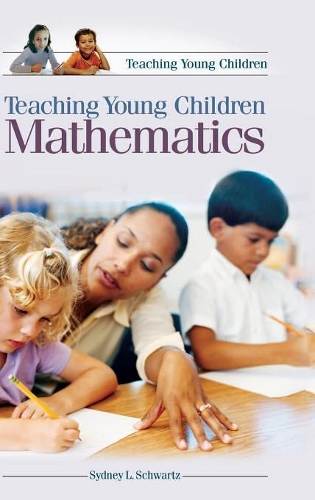
Teaching Young Children Mathematics
(Hardback)
Publishing Details
Teaching Young Children Mathematics
By (Author) Sydney L. Schwartz
Bloomsbury Publishing PLC
Praeger Publishers Inc
30th September 2005
United States
Classifications
Professional and Scholarly
Non Fiction
Educational: Mathematics and numeracy
372.21
Physical Properties
Hardback
224
Description
Children learn mathematics most effectively in contexts that are meaningful to them. Realizing the potential of these contexts for fostering young children's mathematical learning while nurturing and challenging them, requires knowledge of mathematics as well as of child development. Avoiding the debates surrounding hands-on learning vs. direct instruction, the author focuses on the value of different contexts for learning, and illustrates ways to genuinely engage children as active learners. The work is rich with examples of children's interactions with each other and with adults as they utilize and extend their understanding of mathematics. Examples and guidelines for developing lessons and activities will be useful to educators and parents. Chapters explore how we underestimate young children's mathematical capabilities; how appropriate sequencing of learning and building on prior knowledge will enhance understanding; what teachers, including parent-teachers, need to know; and high-stakes testing. This is a work that brings together the connections between knowing the basics and constructing knowledge in accessible and practical ways.
Reviews
Schwartz is well known for her numerous articles on teaching mathematics to young children. She draws on her experiences as an early childhood teacher to give valuable insights into preschoolers' perspectives, interests, and abilities. The chapters on games and the integration of mathematics with other disciplines and classroom routines are useful to anyone planning for or teaching in an early childhood program. Schwartz views mathematics as important but argues that it should be introduced, used, and practiced in contexts meaningful to the young child. Two chapters attend specifically to mathematical learning, one on number concepts and skills, the other on geometry and measurement. The recommended readings are helpful, but there are important ideas about young children's understanding of numbers, their struggles with tens and ones, and what is known about types of simple word problems that do not appear in the text. While primary teachers will find valuable ideas, both preschool and primary teachers will need other sources to find the range and clarity of mathematical ideas needed.Recommended. Upper-division undergraduates and practitioners. * Choice *
Author Bio
Sydney L. Schwartz is Professor Emerita, Elementary and Early Childhood Education, Queens College, City University of New York. She publishes extensively in her field of mathematics education.
